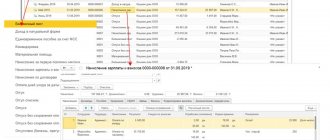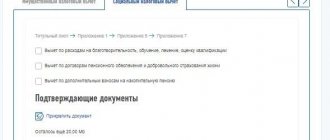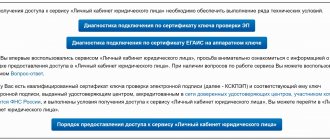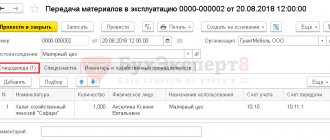Dismissal is the end of the employment relationship between the employee and the employer. As a result of this action, the employee ceases to perform his duties in the organization, and the employer stops paying the resigned employee, and the employment contract is terminated.
The relationship and the procedure for its termination (dismissal) between an employee and an employer are defined in the Law “On Employment in the Russian Federation” and the Labor Code of the Russian Federation.
Labor legislation provides for the following main reasons for dismissal:
- The initiator is the employee (dismissal at his own request).
- The initiator is the employer (dismissal for failure to comply with the employer's requirements, liquidation of the enterprise, reduction of staff, etc.).
- By common decision of the employee and employer (by agreement of the parties).
The dismissal procedure and the final settlement between the employee and the employer depend on the reasons for termination of the employment contract.
Dismissal: how is it formalized?
It is possible to terminate an employment relationship with an employee only if there are documents confirming the basis for the dismissal procedure:
- Employee application (dismissal by own decision).
- An agreement between the employee and the employer if the dismissal occurs by mutual consent.
- Notification of termination of employment if the term for concluding a fixed-term contract has expired.
Further, the employer is obliged:
- Issue an order for the dismissal of an employee, it must indicate the date and reason.
- To accompany the order, issue a settlement note indicating the number of days of unused vacation and all payments due upon final settlement.
- Make the necessary entries in the work book of the resigning employee.
- Issue a work book.
- Pay off the resigning employee.
- Issue certificates 2NDFL, 182n, SZVM-STAZH.
Pay day in case of dismissal
Labor legislation clearly states the time for final settlement with the employee. In this case, he must receive all amounts due to him. The only exception is funds due to a dismissed employee on sick leave. They must be transferred to him within 10 days from the receipt of a properly executed certificate of temporary incapacity for work. All other amounts must be transferred to him on the last working day.
Regarding the deadline for paying personal income tax on compensation upon dismissal in 2017, a number of nuances should be taken into account. In accordance with paragraph 6 of Article 226 of the Tax Code of the Russian Federation, an enterprise, as a general rule, must make tax payments no later than the next day after the employee receives the amounts due to him. However, when paying him benefits in connection with temporary disability, as well as payment for vacation, the corresponding transfers must be made no later than the last day of the current month.
One more important detail should be noted. In practice, enterprises can transfer personal income tax before employees actually receive the money. Despite the prevailing prejudice, experts note that this is not a violation of the law. In accordance with Article 45 of the Tax Code of the Russian Federation, if the funds were sent to the correct account, then the tax is considered paid and the enterprise has no debt on it. Therefore, early payment of personal income tax is not a basis for holding the tax agent liable under Article 123 of the Tax Code of the Russian Federation.
However, in order to avoid the emergence of controversial situations, in the absence of an urgent need for early payment of personal income tax, you should not pay it until the day you receive funds from a banking organization to transfer wages.
Dismissal: final settlement
On the last working day (day of dismissal), it is necessary to make a final payment and pay all amounts due to the employee.
Typically this is:
- Wages (salary, bonuses, allowances, additional payments for part-time work, etc.) accrued for time worked.
- Leave compensation upon dismissal (subject to personal income tax).
- Compensation payments based on dismissal.
Compensation payments based on dismissal include:
- Severance pay for redundancy.
- Severance pay upon dismissal for disability pension.
- Redundancy benefits while looking for a new job.
- Compensation to the manager, his deputies, and the chief accountant upon termination of the employment contract.
On the day of dismissal, it is necessary to transfer the entire accrued amount minus income tax (calculated according to the Tax Code of the Russian Federation) to the employee’s personal account or issue it at the company’s cash desk.
The employer has no right to delay payment (even if the bypass sheet is not signed).
The final payment of the employee upon dismissal
The organization undertakes to pay the employee who has submitted his resignation in full on the last day of his working period. It turns out that with the onset of the specified date, the employee receives wages for the current month, unpaid earlier, as well as the following due to him:
- bonus payments;
- compensation, etc.
If an employee leaves for another place, he is entitled to receive funds
To put it simply, it turns out that the last funds paid to him are given out en masse, in one large amount. However, they contain several different payments due to the resigning individual.
This procedure is established by the Labor Code of the Russian Federation in article number 140. If it is not strictly observed, then the company will be fined 50 thousand rubles in accordance with the Code of Administrative Offenses for withholding funds upon dismissal of an employee. In addition to administrative liability, a persistent defaulting employer risks being subject to criminal liability.
Article 140 of the Labor Code of the Russian Federation as amended on December 31, 2017
However, there is one exception regarding the time period allowed for final settlement. If on the day specified in the order as the date of dismissal, the employee does not appear at the workplace and does not receive a work book or money in cash, then the company has the right to postpone the time of issue. If such a situation occurs, the end of the financial relationship between the company and the employee will occur as soon as the resigned employee comes to the company to receive funds and documents, or on the day following this.
The possibility of adding an additional day is also stipulated by law in the Labor Code of the Russian Federation in article number 140. According to it, the provision of this day is required for various purposes, for example, re-registration of amounts due to the receipt of sick pay.
Dismissal: personal income tax
The accountant of the enterprise calculates and withholds personal income tax on all amounts due upon dismissal.
Personal income tax is subject to:
- Salary (bonuses, allowances, payment at a tariff or salary, additional payments for replacement, etc.).
- Compensation for days of unused vacation.
Attention:
- Compensations related to dismissal and provided for in an employment or collective agreement are not subject to personal income tax if they do not exceed three times the average monthly salary (for workers in the Far North and equivalent regions - six times the amount).
- Amounts exceeding three (six) times the average monthly earnings are taxed in accordance with the established procedure.
- This procedure for withholding personal income tax is common to everyone and does not depend on the position of the resigning employee.
Important: personal income tax withheld upon dismissal must be paid to the budget no later than the day following the day of dismissal (final payment).
Regulations for the payment of tax on individuals
In 2021, the deadline for paying personal income tax upon dismissal of an employee has changed slightly. Now income tax is transferred no later than the next day after the day the calculation is received. The method and type of payments do not matter: additional earnings, vacation compensation, certificate of incapacity for work. The actions of the administration of an enterprise with personal income tax upon dismissal are as follows:
- Determine the amount of tax on the amount due to the employee.
- Withhold the fee when issuing the final payment.
- Fill out a payment order and transfer the money to the budget through the appropriate Federal Tax Service inspection on the day the employee who wishes to resign receives the funds due to him. This can be done over the next 24 hours.
- At the end of the tax period (calendar year), fill out a declaration form 2-NDFL and reflect in it the amount withheld from the dismissed employee. In accordance with the Tax Code and Art. 229, the document is received by the inspectorate from March to the end of April.
It is possible to delay the issuance of a full payment to an employee beyond one day, but only at his own request or fault, for example, if due to some circumstances the dismissed citizen did not come to receive the money. Funds due to the employee are deposited, and final payment occurs on the day the employee actually applies.
Tax legislation determines the general terms for transferring fees to the budget. And it doesn’t matter how the citizen received the payment: in person, on a card, in kind. In case of simultaneous employment in the parent company and a structural unit, the tax is paid separately for each section of the employee dismissed from both places. There is also a report to the inspectorate twice for one person.
Below is a matrix updated by the timing of personal income tax payment upon dismissal of an employee, which clearly indicates the dates of accrual, withholding and payment of tax for different types of income. The table contains links to the regulatory document.
| Profit form | When the fee is calculated - Art. 223 NK | Subtraction time - paragraph 4 of Art. 226 Tax Code of the Russian Federation | The deadline for entering into the budget is clause 6 of Art. 226 NK |
| Salary and bonuses established by the standard | Month of service, end day | Payout number | No later than the day following the issuance of the amount |
| Non-production incentives | Award date | Same | ―″― |
| Dismissal - compensation for remaining days of rest and salary | Last working day | ―″― | ―″― |
| Disability subsidies and holiday pay | When issued in cash or by transfer to a card | ―″― | No later than the final date of the month of payment |
The timing of the transfer of personal income tax upon dismissal must be linked to the dates of receipt and payment of other remuneration. The matrix shows that in terms of benefits and vacation pay, tax payments can be made not immediately, but before the end of the current month.
Dismissal: personal income tax certificate 2
After all the necessary calculations, a personal income tax certificate is issued upon dismissal. It reflects all monthly accruals of the current calendar year that are subject to income tax. Personal income tax certificate 2 upon dismissal must take into account the accruals of the final payment. They are reflected as follows:
- salary with code 2000;
- awards with code 2002;
- compensation for unused vacation - 4800;
- compensation payments in the amount exceeding three times (six times) average monthly earnings - 4800;
2nd personal income tax certificates for those dismissed are submitted to the Federal Tax Service at the end of the calendar year.
Deadline for payment of personal income tax from the last salary of a resigning employee
Based on the norms of current legislation, the day a citizen receives income is considered the last day of the month. However, such an interpretation cannot be applied in case of dismissal, since it is rare that an employee quits at the end of the month.
In this case, according to clause 2 of Article 223 of the Tax Code of the Russian Federation, the date of receipt of profit by the employee is considered to be the last day on which he performed his work duties. And in accordance with paragraph 4 of Article 226 of this code, the transfer of personal income tax must occur on the day the citizen actually receives income or no later than the next day if the payment is made through the cash register.
Accordingly, the transfer of personal income tax is not tied to a calendar month. Tax deductions are made once a month, but immediately after employees of the enterprise receive wages. Thus, if income is accrued or delivered to citizens on the 15th, then personal income tax is transferred on the same day.
However, in practice, situations often occur when an employee, for some reason, was unable to receive his salary on time. This situation must be considered separately, since it is precisely this that raises the most questions. Most often, such situations occur if the employee is on sick leave or on vacation, although there are other reasons for this.
This situation is also encountered when making final payments to an employee after termination of an employment contract. How, in this case, is personal income tax paid upon dismissal of an employee if he does not show up on time to collect his pay slips?
According to the above standards, the accountant must make tax transfers on the day he receives funds from the bank to pay salaries. In such a situation, is it necessary to write an application for a refund of taxes paid, and then make transfers again after handing over the calculation to the dismissed employee?
The current legislation does not provide for such a procedure. If an employee, including a dismissed one, was unable to receive payments on time, they are deposited. That is, from the point of view of legislation, wages are considered to be received by a citizen on a deferred basis. Thus, the date of transfer of personal income tax upon dismissal in 2021 is the time of receipt of funds for such payment from a banking organization. The employee, in turn, who goes to work for the final payment, receives the due amount minus personal income tax. The fact that a dismissed employee receives a final payment later than expected does not in any way affect the company and its tax deductions.
Thus, when to pay personal income tax upon dismissal depends on the actual date of receipt of funds for payment of wages.
Registration of 6 personal income tax upon dismissal
On the day of dismissal, the employer makes the final payment to the dismissed person. This event is reflected in the report on Form 6 of personal income tax as follows.
The second section of the report states:
- on line 100 - the day of final settlement with the employee (ideally, the day of dismissal);
- on line 110 - the date of calculation (withholding) of income tax (coincides with the date on line 100);
- on line 120 - the date following the day of tax withholding (the day that follows the day of dismissal).
Report 6 of personal income tax indicates only the income on which income tax is levied. Compensation payments from which personal income tax is not withheld are not reflected in the report.
Example: Ivanov I.I. resigns on April 26. On the day of dismissal he was accrued:
30,000 rub. — salary payment for days worked in April.
10,000 rub. — compensation for unused vacation.
15,000 rub. — severance pay (not subject to income tax).
Income tax is withheld from the accrued amounts at a rate of 13% - (30000+10000)*13% = 5200 rubles.
In the arms of Ivanov I.I. received (30000+10000+15000)-5200=49800 rub.
In Form 6, personal income tax is reflected as follows:
Line 100 - 04/26/2017, line 130 - 40,000 rubles.
Line 110 - 04/26/2017, line 140 - 5200 rub.
Line 120 - 04/27/2017.
Deadline for personal income tax payment in 2017: table for legal entities
For convenience, we provide a summary table of personal income tax transfers that all legal entities must perform.
| Type of income subject to personal income tax | Deadline for transfer to the budget in 2021 |
| Wage. | No later than the day following the payment day. |
| Production bonuses. | |
| Non-production bonuses. | |
| Salary upon dismissal. | |
| Vacation compensation upon dismissal. | |
| Vacation pay. | No later than the last day of the month in which such income was paid. |
| Benefits for temporary disability (including for caring for a sick child). | |
| Over-limit daily allowance. | No later than the day following the day of payment of income. |
| Unconfirmed travel expenses. | |
| Income received in kind. | |
| Material benefits from saving on interest. |









